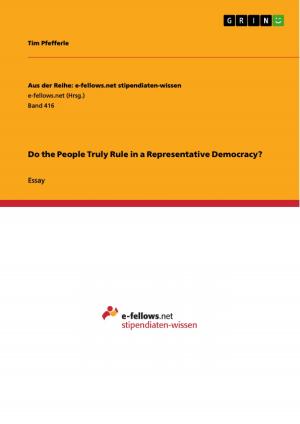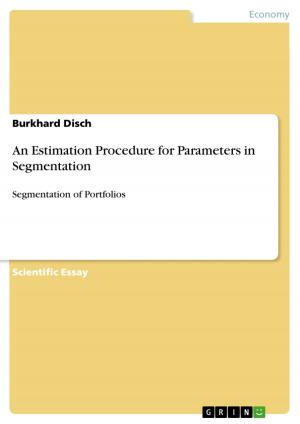Is US Economic Power in Decline Since the 1970s?
Nonfiction, Social & Cultural Studies, Political Science| Author: | Jan Fichtner | ISBN: | 9783638837316 |
| Publisher: | GRIN Publishing | Publication: | September 7, 2007 |
| Imprint: | GRIN Publishing | Language: | English |
| Author: | Jan Fichtner |
| ISBN: | 9783638837316 |
| Publisher: | GRIN Publishing |
| Publication: | September 7, 2007 |
| Imprint: | GRIN Publishing |
| Language: | English |
Master's Thesis from the year 2007 in the subject Politics - International Politics - Region: USA, grade: 1,3, Humboldt-University of Berlin (Institut für Sozialwissenschaften), 133 entries in the bibliography, language: English, abstract: Power - and especially economic power - is one of the least researched concepts in International Relations, yet it is arguably one of the most central phenomena for this academic discipline. The purpose of this study is twofold. First, the goal is to shed some light on the obscure concept of economic power and to illuminate its many facets and varieties. One of the most important aspects will certainly be the introduction of the concept of structural power as developed by Strange. Subsequently, the insights about economic power shall be applied to the international position of the United States as it has developed since the early 1970s. This point in time has been chosen because it marks a fundamental break in the international political economy since the end of World War II, according to Helleiner and other observers. The government-led Bretton Woods system with its inherent fixed exchange rates and its intended confinement of finance to the domestic realm was effectively terminated by the US in the early 1970s. Instead, a market-led 'non-system' characterised by free floating exchange rates emerged in the field of international finance. The academic and political relevance of this study lies in the fact that historically the demise of great powers - and the parallel rise of competitors - nearly always caused intense and violent conflict in the system of international relations. In addition, the pre-dominance (or hegemony) of states since the 17th century derived in a large part from their economic, and especially their financial power. This, in turn, is why this study seeks to find whether or not US economic power has been in decline since the 1970s.
Master's Thesis from the year 2007 in the subject Politics - International Politics - Region: USA, grade: 1,3, Humboldt-University of Berlin (Institut für Sozialwissenschaften), 133 entries in the bibliography, language: English, abstract: Power - and especially economic power - is one of the least researched concepts in International Relations, yet it is arguably one of the most central phenomena for this academic discipline. The purpose of this study is twofold. First, the goal is to shed some light on the obscure concept of economic power and to illuminate its many facets and varieties. One of the most important aspects will certainly be the introduction of the concept of structural power as developed by Strange. Subsequently, the insights about economic power shall be applied to the international position of the United States as it has developed since the early 1970s. This point in time has been chosen because it marks a fundamental break in the international political economy since the end of World War II, according to Helleiner and other observers. The government-led Bretton Woods system with its inherent fixed exchange rates and its intended confinement of finance to the domestic realm was effectively terminated by the US in the early 1970s. Instead, a market-led 'non-system' characterised by free floating exchange rates emerged in the field of international finance. The academic and political relevance of this study lies in the fact that historically the demise of great powers - and the parallel rise of competitors - nearly always caused intense and violent conflict in the system of international relations. In addition, the pre-dominance (or hegemony) of states since the 17th century derived in a large part from their economic, and especially their financial power. This, in turn, is why this study seeks to find whether or not US economic power has been in decline since the 1970s.















